Every day, images from inside Iran surface showing women subjected to police brutality under the guise of enforcing the Islamic Republic's dress code.
One day, "hijab enforcers" strip and severely beat a woman; on another, officers in police uniforms violently beat and arrest another.
This egregious display of violence not only aims to enforce mandatory hijab regulations but also serves to marginalize women from public spaces.
Despite forty-five years of the Islamic Republic's policy of veiling women, such acts of naked aggression persist, highlighting the ongoing struggle for women's rights in Iran.
From the outset of the Woman, Life, Freedom protests, Nazanin bravely removed her hijab and outer garments, joining her parents in daily demonstrations on the streets of Shiraz to advocate for the right to choose their attire.
Speaking to IranWire, Nazanin recounted, "Since mid-October 2022, I've been scarf-less, coat-less, hitting the streets, cafes, every day, contributing to a larger cause. My family stood by me all this time."
However, this familial support ceased abruptly last week, coinciding with escalated violence by proponents of the "Noor" crackdown.
It was then that Nazanin faced the ultimatum: conform to the state-mandated hijab or confine herself to the home under family pressure.
In recent days, numerous women have shared similar accounts on social media, detailing their exclusion from urban spaces.
One user on X lamented the places women are barred from, including "book fairs, cinemas, restaurants, cafes," while another dreamt of strolling down Tehran's Valiasr Street with an optional covering.
Mehdi, a ride-hailing driver, represents a growing number who opt to tint their car windows rather than engage in conflicts over women's attire post-2022 protests.
He explained to IranWire, "Why should I police women's clothing choices? Everyone should have that autonomy. But this car is my livelihood, and I need to work round the clock. I worked 20 extra days just to tint the windows."
Yet, Mehdi was among the first fined for tinting.
In late March, the head of the traffic police announced increased fines for tinted windows, rendering Mehdi's efforts financially burdensome.
With an 800 thousand toman fine, equivalent to several days' earnings, he resolved to cease carrying female passengers.
When asked about perpetuating women's suppression, Mehdi asserted, "I refuse to dictate a woman's attire. Blood has been shed for this cause on this land, and I won't forget."
The oppression tied to mandatory hijab extends beyond public transport—the confiscation of vehicles due to female passengers lacking proper hijab poses a significant daily challenge for Iranian women.
One user said, "I'm seething. I can't leave Tehran in my car, fearing it'll be impounded over hijab, entangling me in bureaucratic nightmares. I feel suffocated."
Another recounted having her car impounded on suburban roads, questioning why a seasoned colonel with 25 years of service must subject her to such indignity.
Meanwhile, the brief presence of women on stadium platforms was short-lived.
Following the publication of a photo depicting an elderly man at Azadi Stadium adorned with a headscarf bearing the religious slogan "Ya Zahra," who insulted and threatened women attendees, the Security Council of Mazandaran Province swiftly moved to ban female spectators.
Simultaneously, Iranian media highlighted "extremists' takeover of stadiums" and the "orchestrated campaign to once again prohibit women's presence in stadiums."
An insider at the football federation disclosed to IranWire that plans to re-impose the ban on women's entry began in late March, with gradual closure of stadium doors to women expected in the final weeks of the Premier League.
The federation is now awaiting potential reactions from FIFA or the Asian Football Confederation.
Eyewitnesses report a similar scenario unfolding in cafes, restaurants, and shops.
Daily reports emerge of business units being shut down for serving women without compulsory head coverings.
Some proprietors, under pressure from law enforcement and security agencies, have reluctantly refused to serve women with optional coverings.
The policy of the Islamic Republic is aimed at denying women their rightful presence in urban spaces.
An urban sociologist shared insights with IranWire, stating, "The issue transcends mere hijab enforcement, urban management over the years has systematically marginalized women's presence in public areas."
He elaborated, "Women have long vanished from city streets, facing dark alleys, billboards obstructing bridges, and overgrown shrubbery rendering sidewalks unsafe. The official or unofficial bans on women cycling and motorcycling further shrink their urban footprint."
Highlighting the absence of laws prohibiting women from exercising in urban public spaces, the sociologist noted that despite this, women are denied access to urban green areas.
He asserted that the Islamic Republic's overarching policy aligns with the "denial" of women's bodies in public spaces.
Ali Khamenei, the Supreme Leader of the Islamic Republic, reiterated this stance in a recent meeting with women, stressing that women's primary roles are "housekeeping, childbearing, and motherhood."
He emphasized the importance of women fulfilling these roles alongside any outside employment, calling on authorities to facilitate this dual responsibility.
Khamenei's repeated emphasis on "respecting hijab" culminated in the implementation of the "Noor" crackdown, which has escalated violence against women.
The latest enforcement of severe measures began on April 13, just hours before Iran launched hundreds of suicide drones and missiles at Israel.
Across Iran, there have been numerous reports of women being arrested and subjected to the use of force due to perceived violations of mandatory dress codes.
Users across social networks are participating in a spontaneous campaign using the hashtag "war against women" to document their experiences and observations regarding the government's crackdown on opponents of mandatory hijab.
Reports have surfaced detailing the use of repressive tactics, particularly on female students in various universities.
Moreover, pressure has also been mounting on civil activists, political dissenters, women political prisoners, and cultural figures.




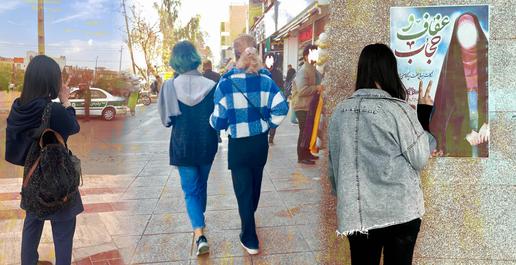
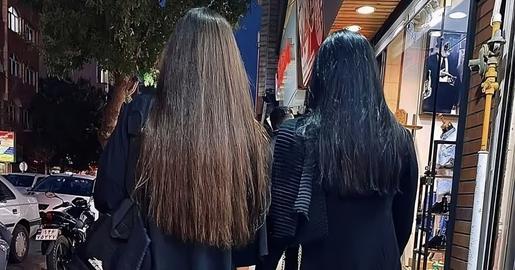
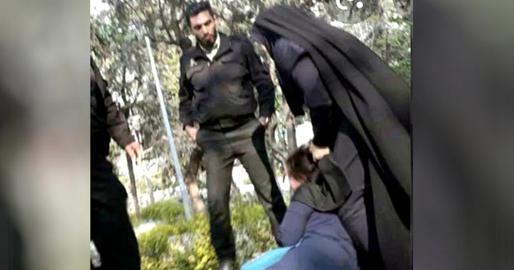
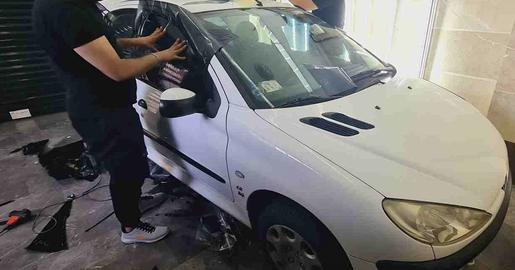
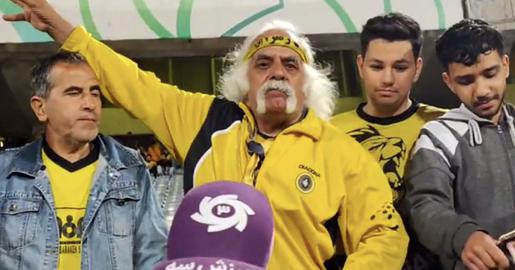











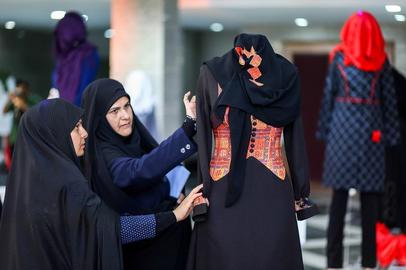





comments